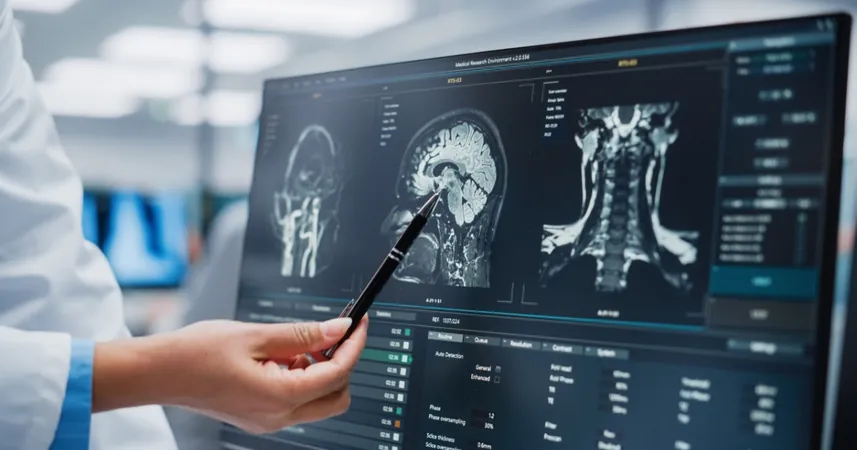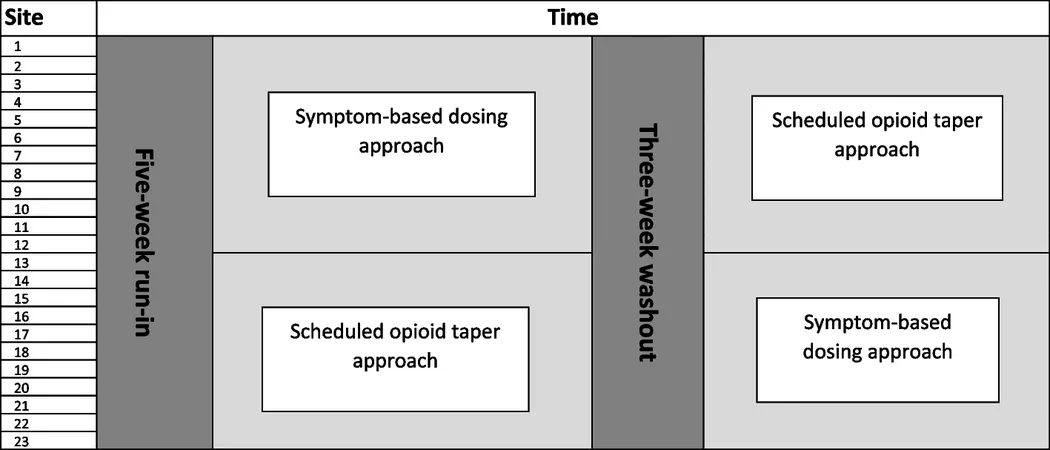
Revolutionary Study Unveils Brain 'Cleaning' Method That Boosts Memory in Mice
2025-08-31
Author: Michael
A New Hope for Aging Minds
Aging—a terrifying journey for many, fraught with the looming dread of diminishing mental faculties. The fear of conditions like Alzheimer’s and dementia plagues countless individuals, but a glimmer of hope has emerged from a groundbreaking study.
Researchers at Washington University School of Medicine in St. Louis have unveiled a revolutionary technique aimed at preserving and even restoring mental sharpness in late adulthood. Their findings, recently published in the prestigious journal *Cell*, could potentially benefit millions.
Understanding the Problem: Clogged Brain Drain
This research builds upon earlier findings indicating that the meningeal lymphatic system—an essential network of vessels encapsulating the brain—tends to slow down as we age. This system is vital for draining waste and fluid away from the brain to the lymph nodes, enabling the immune system to monitor for diseases.
As aging progresses, this lymphatic system can become sluggish, leading to a buildup of waste and hindering the brain’s ability to fend off infections—issues that normally would be tackled more effectively by the body’s robust immune response.
Innovative Solution: Enhancing Lymphatic Functionality
With these challenges in mind, the research team sought to enhance the functionality of the meningeal lymphatic system directly, offering dual benefits: efficient waste removal akin to that of a younger brain and improved brain health without battling the notoriously impermeable blood-brain barrier that hampers many treatments.
Professor Jonathan Kipnis, a prominent figure in this study, emphasized the potential impact, stating, "By targeting the vessels outside the brain that are essential for its health, we’ve seen cognitive improvements in mice, paving the way for groundbreaking therapies to combat cognitive decline."
Promising Results: A Memory Boost for Older Mice
In a pivotal experiment, older mice were given familiar toys to assess their memory. Surprisingly, while younger mice quickly gravitated towards a new object, older ones showed indifference, indicating forgetfulness.
However, after treatment aimed at boosting their lymphatic vessels, the aging mice exhibited a marked increase in engagement with the new toy, hinting at significant memory improvements due to the intervention.
The Road Ahead: Paving the Way for Human Trials
Kyungdeok Kim, the study's first author, highlighted the critical role of a functioning lymphatic system in brain health, suggesting that therapies focusing on waste management may hold incredible promise for alleviating age-related cognitive decline.
While further research is essential before transitioning to human trials, this study opens exciting avenues in brain disorder treatment. Kipnis offers an optimistic outlook, stating, "While we may not be able to revive neurons, we can optimize their functioning by nurturing the surrounding lymphatic network.”
Conclusion: A Bright Future for Mental Health
This pioneering research strikes a chord with millions grappling with the grim realities of aging-related memory issues. Finding effective ways to enhance memory and mental clarity is not just crucial; it can transform lives and restore hope to families worldwide facing cognitive decline.









 Brasil (PT)
Brasil (PT)
 Canada (EN)
Canada (EN)
 Chile (ES)
Chile (ES)
 Česko (CS)
Česko (CS)
 대한민국 (KO)
대한민국 (KO)
 España (ES)
España (ES)
 France (FR)
France (FR)
 Hong Kong (EN)
Hong Kong (EN)
 Italia (IT)
Italia (IT)
 日本 (JA)
日本 (JA)
 Magyarország (HU)
Magyarország (HU)
 Norge (NO)
Norge (NO)
 Polska (PL)
Polska (PL)
 Schweiz (DE)
Schweiz (DE)
 Singapore (EN)
Singapore (EN)
 Sverige (SV)
Sverige (SV)
 Suomi (FI)
Suomi (FI)
 Türkiye (TR)
Türkiye (TR)
 الإمارات العربية المتحدة (AR)
الإمارات العربية المتحدة (AR)